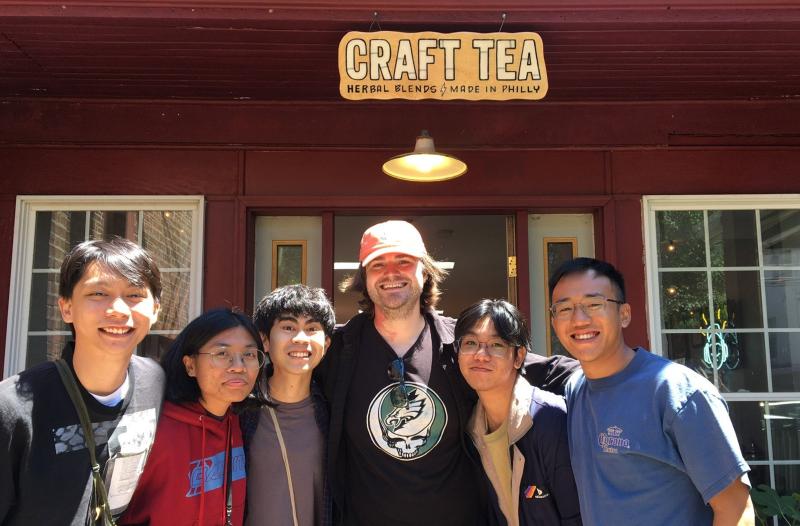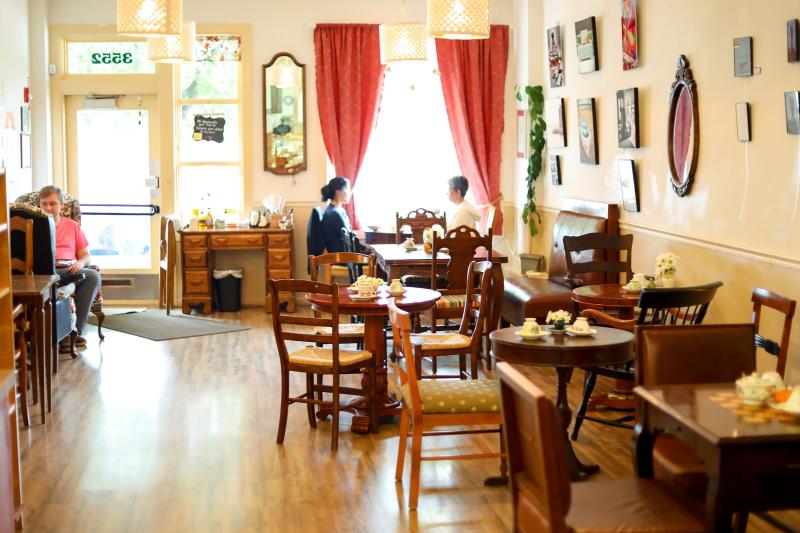What are the most important trends and issues in the global tea industry right now?
For this World Tea News round-up, we asked several tea industry leaders, tea entrepreneurs and tea companies for their thoughts and insights.
Here’s what they had to say.
Raj Vable, Founder of Young Mountain Tea:
“Most of the tea that we drink is grown on estates, where a private player owns both the tea bushes and the tea processing facilities, called factories. On most estates, the tea farmer is paid wages to work the land and doesn't own anything – not the land, not the tea bushes and not the finished tea. Traditionally, the farmer depends on the estate owner for housing, food subsidies, healthcare and more.
“There’s little incentive for farmers to stay in tea and remain dependent on estate owners, so many are leaving in favor of jobs in overcrowded cities. Tea is very labor intensive, and the best teas are hand-harvested on steep mountainsides by skilled farmers. If these skilled farmers continue to leave the tea industry in droves, the industry is likely to collapse.
“One of the proposed solutions is mechanization, meaning to replace human labor with machines. However, this requires the tea bushes to be planted in neat rows so the machines can access the tea. Preparing a tea garden for mechanization requires ripping out mature tea bushes, terraforming the mountains, then replanting with new tea bushes that take seven years to reach maturity. That's a long-term investment that many owners can't afford. Also, the quality of mechanically harvested tea will always be lower than hand-plucked, as the best teas require careful selection of the youngest leaves of the tea plant.
“The other solution is to shift ownership into the hands of the farmers, so they have an incentive to stay in tea. It’s when farmers own the tea bushes and the factories that process it, that they can earn enough to make tea an actual sustainable and dignified livelihood. If the quality of the tea goes up, so too do the earnings of the farmers, creating a more viable future for all involved.”
* * *
Jim Lamancusa, Founder & CEO of Cusa Tea:
“The most pressing issue for Cusa Tea continues to be supply chain logistics. Pre-pandemic it would take us three to four weeks to receive organic tea from our partners in India, China and Japan. Now it can take 12 to 16 weeks due to port congestion and trucker shortages. It's difficult because now we need to buy the materials months before we used to.”

* * *
Staci Brinkman, Founder of Sips by:
“From a consumer sales perspective, extremely hot temperatures throughout summer and increased consumer spend on travel and in-person experience is creating softness in non-RTD, non-hospitality tea sales across the industry. Amazon has been a boost in revenue for brands, though comes at a cost to margin and relationship to the customer that is difficult to compete with given their highly economized and scaled supply chain and distribution.
“From an industry perspective, the cost of shipping containers and DTC [direct to consumer], and general logistics, labor and supply has created strain for all companies, especially boutique brands and small business.
“While Millennial interest in specialty tea is strong, GenZ has interest, but not as robust a pallet – yet. They are spending significantly more on specialty products, a.k.a. ‘nutraceuticals,’ that incorporate L-Theanine as an ingredient, among other popular herbal blends touting their adaptogenic, nootropic and calming qualities.
“We need to get the message out: Stop paying 500 percent more for a pill or a patch or a gummy, when you can enjoy a soothing cup of tea. The silver lining is that in a time of prolonged social, wellbeing and political stress and strain worldwide, tea is what people need – and people will always come back to tea.”

* * *
Michael O'Brien, Owner of Craft Tea:
“In my opinion, tea as an alcohol alternative is one of the most important trends in the global tea industry. Substituting a healthy habit for a destructive one can jumpstart the improvement of one’s life, and tea is one of the easiest routines to pick up and maintain. If we can convert just a fraction of alcohol drinkers into the tea world, I think we’d be doing a great service not only to individuals, but to society as a whole.”

* * *
Filip Pejic, Founder of Pearly:
“Bubble tea is getting the mainstream consumer interested in learning about tea again. For example, the other day my friend asked me while we waited in line at a bubble tea shop: ‘What is the difference between oolong and jasmine tea?’ As bubble tea shops become more experimental with teas, the average consumer will learn more and more about the space.
“Bubble tea shops have the opportunity to make tea a popular gift purchase. With millions of people shopping at bubble tea shops every day, picking up tea at the counter while you're getting a drink will become the norm.
“Inflation is getting crazy! Starbucks and local bubble tea shops have been consistently raising prices. Making drinks at home is more appealing than it's ever been.”

* * *
Dylan Lindeberg, Co-Owner & Director of Sales & Marketing for Open Door Tea:
“Hibiscus tea is growing rapidly, which is wonderful due to both the nutritional benefits and the deep, rich red color it adds to the tea liquor. Turmeric is another trending ingredient – added into lattes, powders and herbal blends. Mindfulness is another growing trend. ‘Taking time for tea’ has become more mainstream due to the meditative benefits one can receive through intentional rest. The ongoing trend away from artificial flavors and sweeteners continues, with more people becoming conscious just how much sugar they consume. Non-dairy creamer options are on the verge of becoming standard with the rise of veganism and lactic intolerance.”

* * *
Heather Black, Marketing Manager, USA, at Clipper Tea:
“More than half of respondents to Fairtrade’s biennial Fairtrade Consumer Insights report, conducted by GlobeScan, confirmed they have changed their purchasing choices to make a difference on economic, social, environmental or political issues, indicating people increasingly see their everyday shopping as an important way to make a difference.
“At Clipper Tea, we’ve found that working with third-party certifications quickly communicates to consumers many of the ways we are doing things right, with Non-GMO, USDA Organic and Fairtrade certifications prominently displayed on packaging.
“We also communicate about our sustainable packaging using plant-based, biodegradable, unbleached and non-GMO tea bags and recyclable boxes and recyclable and biodegradable individual tea bag envelopes so consumers can feel good about drinking our tea.”

* * *
Jami Lewchik, Head of TAZO & Portfolio Sustainability at ekaterra Americas:
“At TAZO, we see the biggest issue in the industry right now being the role that corporations play in driving global climate change. It’s critical that corporations, including the entire tea industry, drastically reduce their contributions and take action to address their full climate impact as quickly as possible.
“One way to address this is by setting science-based targets for greenhouse gas emission reductions for validation by the Science Based Targets initiative. At TAZO, our goal is to achieve carbon neutral operations and be on the path to science-based net-zero emissions by 2026, and by 2030, aim for a 45 percent absolute reduction of scopes 1, 2 and 3 greenhouse gas emissions as compared to the 2020 base year.
“Another way industry leaders can address their full climate impact is by overhauling their means of production and transitioning to a regenerative organic approach – one that encompasses increased soil health while also prioritizing animal welfare and worker fairness, as coined by the experts at the Regenerative Organic Alliance.
“We’re currently working toward getting TAZO’s full range of products Regenerative Organic Certified and aiming for our tea and key ingredients, together comprising at least 80 percent of TAZO's ingredient volume, to meet our regenerative agriculture standards by 2029.”
Erin Flynn Jay is a reporter and publicist based in Philadelphia. She’s a contributor to Questex’s World Tea News and Bar & Restaurant, and some of her other writing credits include Next Avenue and Woman’s World, among many others.
Plan to Attend or Participate in the
World Tea Conference + Expo, March 27-29, 2023
To learn about other key developments, trends, issues, hot topics and products within the global tea community, plan to attend the World Tea Conference + Expo, March 27-29, 2023 in Las Vegas, co-located with Bar & Restaurant Expo. Visit WorldTeaExpo.com.
To book your sponsorship or exhibit space at the World Tea Conference + Expo, or to enquire about advertising and sponsorship opportunities at World Tea News, contact:
Ellainy Karaboitis-Christopoulos
Business Development Manager, Questex
Phone: +1-212-895-8493
Email: [email protected]
Also, be sure to stay connected with the World Tea Conference + Expo on social media for details and insights about the event. Follow us on Twitter, Facebook, Instagram and LinkedIn.
